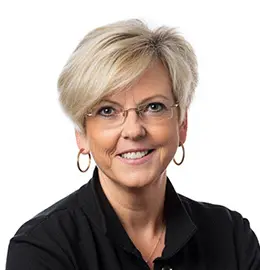Social Thinking® Conference - 2025
26 - 27 May 2025
Conference Program
Day 1 | Monday May 26th, 2025
How Do We Do What We Don’t Want To Do? Exploring strategies to problem solve, rally motivation, and get things done
Speakers: Michelle Garcia Winner and Dr Pamela Crooke
Many students intuitively learn strategies to foster executive functioning, without significant direct instruction, such as organizational skills, social problem solving, time management, and self-regulation of their actions and feelings based on the situation and the people. But there is a significant number of students in Tier 1, as well as Tiers 2 and 3 who do not and it’s up to us, as educators, caregivers, and therapists to provide supports and teaching. In this day, we will unpack a range of concepts and provide a variety of related strategies for different age groups. These include, but are not limited to, the power of metacognition, exploring positive and negative feelings and emotions, rallying motivation, use of the Like-Dislike Scale as well as The Risk Scale, and a deeper look at how our mind travels across time (past and future) to guide what we do in the here and now.
Throughout the talk, we’ll also bring these and other concepts to life with the help of selected artwork within two new teaching tools with embedded stories to be published in 2025. One is a graphic novel for tweens, teens, and young adults called Brain Hacks: Strategies to Build Motivation and Inspire (Sojat &Winner), for students from about 10 years old through young adulthood. This graphic teaching guide will introduce the Like-Dislike Scale as well as the Time Travel Wall to encourage youth to consider a range of strategies they can learn to use to help them help themselves. The other visual teaching guide is called Let’s Solve it! (Winner & Crooke, 2025). This colorful visual tool is designed to unpack and engage younger children (ages 4–8) through 23 problem-solution story sets and related thinksheets to help kids work through a four-step process when solving socially based problems and recognizing their solutions.
Learning objectives:
- Participants will describe how to use a visual tool (i.e., Time Travel Thinksheet) to teach how past memories and future thinking can guide what to do in the “here and now.”
- Participants will explain how to teach social problem solving using a story-based teaching template.
- Participants will explain how to teach students to manage doing things they don’t like to do using the Like-Dislike Scale.
Day 2 | Tuesday May 27th, 2025
Implementing Social Thinking in Schools: Effective Social-Academic Learning Strategies for All Students
Speakers: Dr Pamela Crooke and Chithra Kathiresan
The Social Thinking® Methodology and its practical concepts and strategies are being used in schools around the world. Social Thinking was originally developed for individuals with social emotional learning differences. More recently, however, the value of the frameworks, concepts, and strategies is being recognized on a wider scale and adopted as part of social learning programs for all students. In this course, we will explore how individuals, schools, and systems can implement Social Thinking in a systematic, effective, and sustainable way.
While many programs are designed to teach basic “social skills” or simply ways to teach children to “behave,” Social Thinking teaches the underlying why we use social skills and the deeper metacognitive connection to the process of social interpretation and problem solving. Tools and materials support teaching self-awareness, self-regulation, executive functioning, and perspective taking—competencies the social mind has to access across the school day.
The same social thinking required to relate effectively to people around us is also essential for success in academics. Students use social thinking constantly at school, to work effectively as part of a group, stay on task, figure out the expected times to talk in class, and share space well with others in the classroom, cafeteria, and on the playground. Social thinking is also critical for individualized academic tasks, such as reading comprehension, writing a paper, or presenting work to others.
Throughout many years, Social Thinking has collaborated with a variety of schools. From large to small, public to independent, this conference day will share our collective work in elementary schools. Ideas on how we age the concepts up to secondary school will also be included.
We’ll provide practical examples and stories of how schools have implemented Social Thinking to support social competencies. When classroom teachers, specialists, and caregivers share the same language and strategies, it creates more cohesive learning environments. We will explore how the Social Thinking Vocabulary can be used across social landscapes (all aspects of home, school, and community) to build a bridge between environments and people.
Ideas and inspiration on setting up classrooms and other social learning spaces using visual supports will be featured. We will provide example lesson plans, including ways to teach social observation, support daily transition times, and set expectations. Through video clips, administrators, classroom teachers, specialists, and support staff will share their experiences with implementing the Social Thinking Methodology. We will share lessons learned, challenges tackled, and advice for the journey.
Learning objectives:
- Explain the importance of social observation to group learning and how to teach it using the Smart Guess formula.
- Identify at least two strategies for supporting students during daily transition times.
- Describe two activities to help social learners identify their strengths and advocate for their needs.
Training details
Date
26 - 27 May 2025Time
9am - 4.30pmVenue
Raffles Town Club1 Plymouth Avenue
Singapore 297753
Fees
- S$720 - Attend both days
- S$390 - Attend 1 day only
(Includes handouts, lunch and tea breaks)
This is an AHPC accredited event and is eligible for CPE points for Allied Health Prefessionals
For enquiries, please email us at info@c-c.sg
Register
About the conference
Who should attend
Teachers/Allied Educators from mainstream and special needs schools, Speech-language therapists, Occupational therapists, Autism specialists, Psychologists, Counselors, Psychiatrists, Pediatricians, Social workers, Parents, and Caregivers.
Population to be discussed
5yrs to Young Adults. Students who have social and communication difficulties; including but not limited to those related to high-functioning autism, PDD-NOS, Asperger Syndrome, NVLD, AD/HD and undiagnosed challenges. Information presented concentrates on students with near normal to far above normal verbal intelligence.
Getting the most out of the conference
These conference days are focused on expanding and deepening knowledge around Social Thinking®, strategies and applications; it is advised that participants have some basic knowledge about Social Thinking®. There are many free articles about Social Thinking on the website www.SocialThinking.com. Prior to attending, participants are recommended to familiarize themselves with the Social Thinking-Social Communication Summary by reading the article, Understanding Unique Social Communication Characteristics and Social Learning Systems
About the speakers

Michelle Garcia Winner, Founder & CEO Social Thinking • MA, CCC-SLP
Michelle Garcia Winner, MA, CCC-SLP, is the founder and CEO of Social Thinking and a globally recognized thought leader, author, speaker, and social-cognitive therapist. She is dedicated to helping people of all ages develop social emotional learning, including those with social learning differences. Across her 30-year career she has created numerous evidence-based strategies, treatment frameworks, and curricula to help interventionists develop social competencies in those they support. Michelle's work also teaches how social competencies impact people's broader lives, including their ability to foster relationships and their academic and career performance. She and her team continually update the Social Thinking® Methodology based on the latest research and insights they learn from their clients.

Pamela Crooke, PhD, CCC-SLP • Chief Curriculum Officer
Pamela Crooke, PhD, CCC-SLP, is Chief Operations Officer and Head of Training, Curriculum and Research at Think Social Publishing, Inc. She served as a clinical faculty member of three universities and worked as a speech-language pathologist in the Arizona public schools for 15 years. Pam is a prolific speaker both in North America and abroad and has co-authored five award-winning books related to Social Thinking with Michelle Garcia Winner. Their book, You Are a Social Detective! 2nd Edition (2020), won the 2021 Creative Child Magazine Preferred Choice Award, the 2021 Mom's Choice Gold Medal Award, the 2021 Best Book Awards Finalist, and the 2022 International Book Awards Finalist. They co-authored the companion You Are a Social Detective! Teaching Curriculum and Support Guide, (2022). She and Michelle collaborate on writing articles and blogs that appear on the Social Thinking website and in a wide array of publications. Her current research focuses on using practice-based research to examine how professionals and parents use frameworks and strategies within the Social Thinking® Methodology.

Chithra Kathiresan, SLP, Social Thinking® Speakers Collaborative
Chithra is the Clinical Director of Connect and Communicate LLP and has been working as a speech-language therapist in Singapore for more than 30-years. Her broad experience includes working in hospitals, school, community, home and centre. Chithra was invited to be a member of the Social Thinking® Training and Speakers’ Collaborative (STTSC) in 2012. She is a certified trainer for Social Thinking in Asia. Chithra has presented on Social Thinking in Singapore, Hong Kong, Malaysia, Indonesia, and China. She has presented at SENIA meets (Special Education Network in Asia) and the Social Thinking Providers’ Conference in San Francisco, California. She holds an active clinical caseload, with many school-going kids, all the way to tertiary institutions. Chithra conducts Social Thinking evaluations, provides individual therapy, and runs many Social Thinking group programs. In addition to conducting workshops, she talks to schools and support teams to find better ways to support kids in the classroom.

